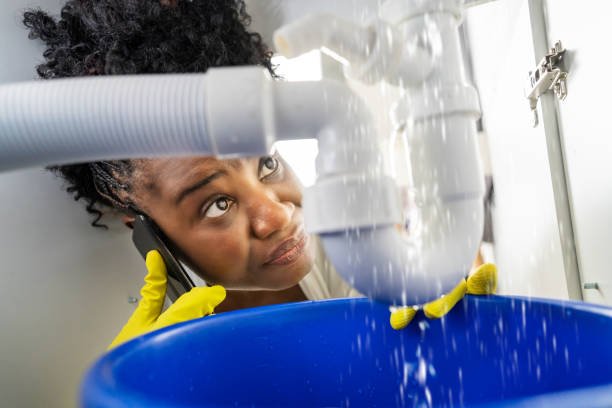Preventing Plumbing Emergencies: Tips for Regular Maintenance and Inspections
RH Business Marketing Solutions
Having a plumbing emergency can be stressful, inconvenient, and costly. However, many plumbing emergencies can be avoided with regular maintenance and inspections. Being proactive helps you catch minor issues before they become big problems. This article provides tips for preventing plumbing emergencies through maintenance and inspections.
Inspect Faucets and Showerheads Regularly
Faucet and shower leaks can account for a significant amount of household water waste. Even minor drips can waste hundreds of gallons over time. Inspect faucets and showerheads regularly. Look for drips or leaks and tighten connections if needed. If drips persist, replace washers or valves. Consider replacing showerheads occasionally to improve water efficiency.
Check for Hidden Leaks
If left undetected, leaks hidden in walls, under sinks, or underground can cause water damage or mold. Check under and around sinks regularly for wet spots or water stains. Listen for running water when fixtures are off. Also, review your water bill for higher use. As higher pressure increases leak risk, have your home’s water pressure tested occasionally. Remember that catching leaks early prevents major damage.
Inspect Toilets Regularly
Toilets make up a large percentage of water consumption inside the home. A single leaky toilet can waste gallons daily. Regular inspections help spot leaks, flapper valve issues, and clogs early. Check for water running after flushing and look for stains around the base. Test flapper valves by holding the lever down when empty. Replace flappers occasionally or valves that are over 10 years old.
Clean Sink and Shower Drains
Clogged drains lead to backed-up sinks, tubs, and showers. You can prevent clogs by cleaning drains regularly. For sinks, remove and clean the drain stopper thoroughly. Use a drain snake or wire coat hanger to loosen built-up debris. Flush drains with hot water. For showers, remove the drain cover and remove hair with tweezers or a zip-it tool. Prevent clogging by using drain catchers.
Inspect Supply Pipes and Fill Valves
Worn or cracked supply pipes and faulty fill valves are common but preventable issues. Inspect toilet and sink supply hoses regularly for wear, leaks, or kinks. Replace old braided steel hoses with newer reinforced polymer types that resist bursts. Check toilet fill valves occasionally and replace any old ones. Adjust or replace valves with audible hissing, which signals flapper leakage.
Clean Hot Water Heaters Regularly
Regular hot water heater maintenance improves efficiency and prevents issues. Drain some water from the tank using the drain valve. Flushing sediment extends tank life. Inspect the anode rod and replace it if worn. Check pressure relief valves for proper operation. Clean tanks occasionally with calcium, lime, and rust cleaner per product instructions. Consider replacing older heaters.
Check for Gas Leaks
Undetected gas leaks pose explosion and carbon monoxide risks. Check gas appliances and lines for leaks regularly with leak detector fluid. Apply the fluid and look for bubble formation, which signals a leak. If signs of a leak are noticed, turn off the gas line and promptly reach out to a qualified service technician for assistance. Never use matches or lighters or create sparks near gas leaks.
Know Where Your Shutoff Valves Are
Prevent extensive water damage by knowing the locations of your shutoff valves and ensuring they function. Use shutoffs to isolate leaks or before repairs. Exercise main shutoff and fixture valves regularly to keep them operating smoothly. Replace old galvanized steel valves, which corrode and freeze over time. Brass ball valves are durable, easy-to-use replacements. Keeping access doors operational makes isolating and repairing leaks faster and simpler.
Locate and Maintain Access Doors
Having accessible and operational access doors makes inspecting and repairing pipes much easier. Locate any plumbing access doors and open them yearly to inspect pipes and perform maintenance. Access doors may be in walls, ceilings, or foundation slabs. Ensure access doors open and close properly, with latches and seals intact. Repair or replace rusted, damaged, or missing access doors. Consider installing high-quality ones like the BA-ADWT-SS airtight watertight stainless steel access door, which has an airtight/watertight gasket for a corrosion-resistant solution. Maintained access doors like this give technicians easy access to plumbing systems for preventative maintenance.
Final Thoughts
Being proactive with plumbing care saves you time, money, and headaches. It's easy to ignore a small drip or rattling pipe until it becomes an emergency. Take steps to handle issues before they become more problematic. Follow these maintenance tips now so you can enjoy water flowing smoothly through your plumbing system for years to come.
When it comes to your home's plumbing, an ounce of prevention is truly worth a pound of cure. Investing a little time monthly in inspections and maintenance keeps minor issues from snowballing into huge problems. Your future self will thank you when you no longer have to deal with a major mess and repair bills from a pipe burst or overflowing sewer drain. Protect your most valuable investment—your home—by making plumbing care a priority today.
Guest Contributor: Chris Jackson
